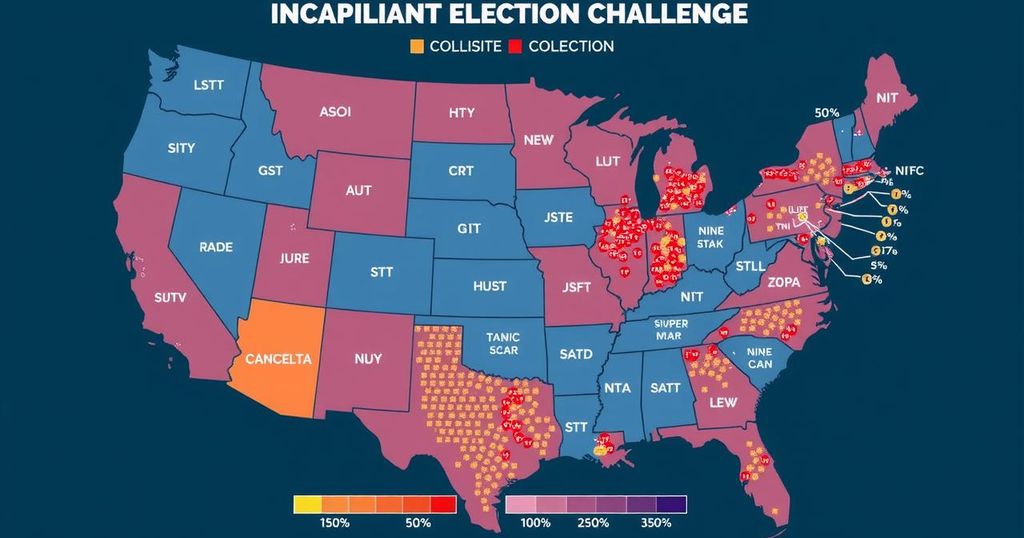Discontent Among Voters: The Global Trend in Anti-Incumbency

The 2024 election year has seen widespread voter discontent leading to substantial losses for incumbents across more than 70 countries worldwide. Key issues driving this anti-incumbent mood include economic distress, inflation, and disconnection from political elites stemming from the COVID-19 pandemic. Prominent examples of this shift include elections in the United States, the UK, South Africa, and multiple European nations, where governments faced severe backlash despite previously strong holds on power.
In a tumultuous electoral year termed the “super year,” incumbents globally face significant backlash from voters, leading to widespread defeats. From the United States, where Donald Trump reclaimed the presidency, to elections across Europe, Asia, and Africa, voters across ideological lines have expressed discontent with existing governments. The common thread among these results has been economic challenges, a sense of disconnect from political elites, and the lingering impact of the COVID-19 pandemic, correlating to an anti-incumbent sentiment that has shifted the global political landscape. Political analysts point to inflation and economic hardship as critical drivers of this trend, suggesting that dissatisfaction with governance has reached unprecedented levels, with governments in numerous democracies being overturned. A notable example on this front includes the southward spiral of electoral support for the African National Congress in South Africa, alongside significant losses in Germany and the UK. While recent elections demonstrate a robust anti-incumbent wave, this shift also raises questions about the stability of newly elected officials who, although initially celebrated, face mounting pressure from an increasingly skeptical electorate.
The recent global political landscape has witnessed a substantial wave of electoral changes, with incumbents in various nations struggling to maintain their positions in power. Notably, 2024 has been characterized by extensive electoral activity in approximately 70 countries, underscoring a complex interaction of factors driving voter behavior. Economic issues, particularly those exacerbated by the COVID-19 pandemic, such as inflation and growing dissatisfaction with political elites, have been paramount in shaping this anti-incumbent sentiment. This period marks a crucial juncture for democratic institutions, compelling voters to reconsider their allegiance to existing political parties and challenging conventional understandings of ideological lines within electoral outcomes.
In conclusion, the ongoing global political upheaval encapsulates profound voter discontent with incumbents, driven primarily by economic distress, perceived disconnection from political elites, and the punitive consequences of political performances post-pandemic. With significant electoral shifts across numerous democracies, an evident trend toward rejecting established parties emerges, calling into question the future stability and legitimacy of incoming administrations. As the global electorate becomes increasingly impatient, the implications for democratic practices and governance require careful consideration by political analysts and leaders alike.
Original Source: apnews.com







